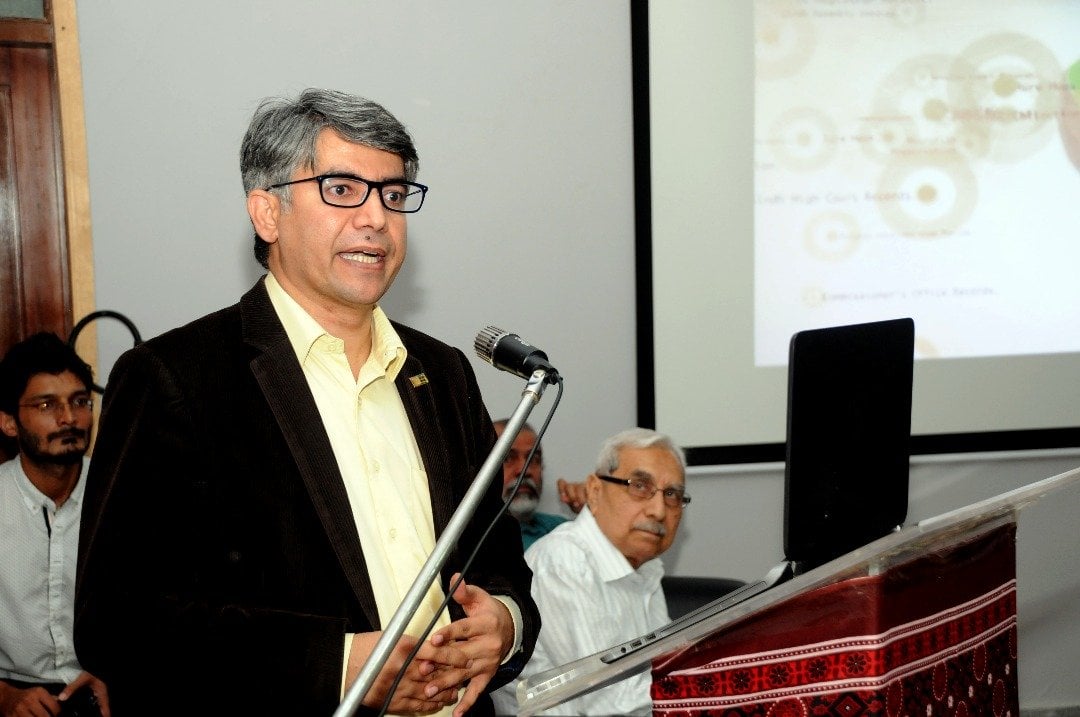
Organised by the Sindh Archives Department, the event ‘Archival Collection: Source Material for Research’ had speakers sharing their knowledge on archives.
“The prime [methods] of understanding records are [through] archives and history. The department of archives is preserving these well and these records are accessible,” said Amin Lutfi, a PhD student and researcher. “Don’t call archives boring documents. They might not be a popular form of history, but archives are a raw source of data,” he cautioned participants of the event.
“Just like a reporter who writes oral history [only], we have neglected our archives. What is required is the preservation of history for the sake of governmental transparency and because of our colonial past,” he explained.
Sindh archives dept allocates funds for retrieval of rare documents
After sifting through archival material, the researcher deduced that, “The colonial government would not have worked if the colonial empire had not documented even the minutest details”. According to Lutfi, colonial records show the positive impact the British had on the areas under their rule. “Till universities realise what raw data processing skills can do, new history will never be written,” he said.
Bureaucrat and former director of Sindh archives Iqbal Nafees Khan said the archives department was and is still known for four things - acquisition, conservation, preservation and findings. He shed light on colonial rule and said the British believed in ‘quick rewards and quick punishments.’
Khan said they were able to document everything, from the time of the mutiny of 1857 to the crowning of Queen Victoria. The department, located in Clifton, has about 1,200 manuscripts, including Dewan-e-Walid bin Yazid, he told participants.
“Archives are a form of memory committed in the form of text. It is not something new. In Mesopotamia, people used to record the reign of the king on tablets,” said professor of history and anthropology Abdul Hafeez Jamali. “Archives are a different part of memory that tell a story. Every letter, every file tells a story. It is the best source of information,” he said.
Rs2.88b allocated for culture, antiquities in Sindh
Researcher and archaeologist Kaleemullah Lashari discussed Jinnah’s place of birth, which some say is Jheerak but scholar and Jinnah’s biographer Rizwan Ahmed documented it, via the Quaid’s own quotes, to be Karachi. Lashari said during the Indian National Conference that was held in Karachi in 1913 Jinnah referred to the city as his birthplace. With numerous dates of birth surfacing for Jinnah, Lashari said there was no direct entry documenting his birth.
“I am glad my department has been able to create cultural activism in our midst. I am glad that we are now able to be linked to the world. The world over, archives hold a lot of importance and are records for research and it is high time we take them seriously,” said Culture, Tourism, Antiquities and Archives Minister Syed Sardar Ali Shah. “Our past is our glory, let us shine through it.”



1719319701-0/BeFunky-collage-(10)1719319701-0-165x106.webp)







1735025557-0/Untitled-(96)1735025557-0-270x192.webp)











COMMENTS
Comments are moderated and generally will be posted if they are on-topic and not abusive.
For more information, please see our Comments FAQ